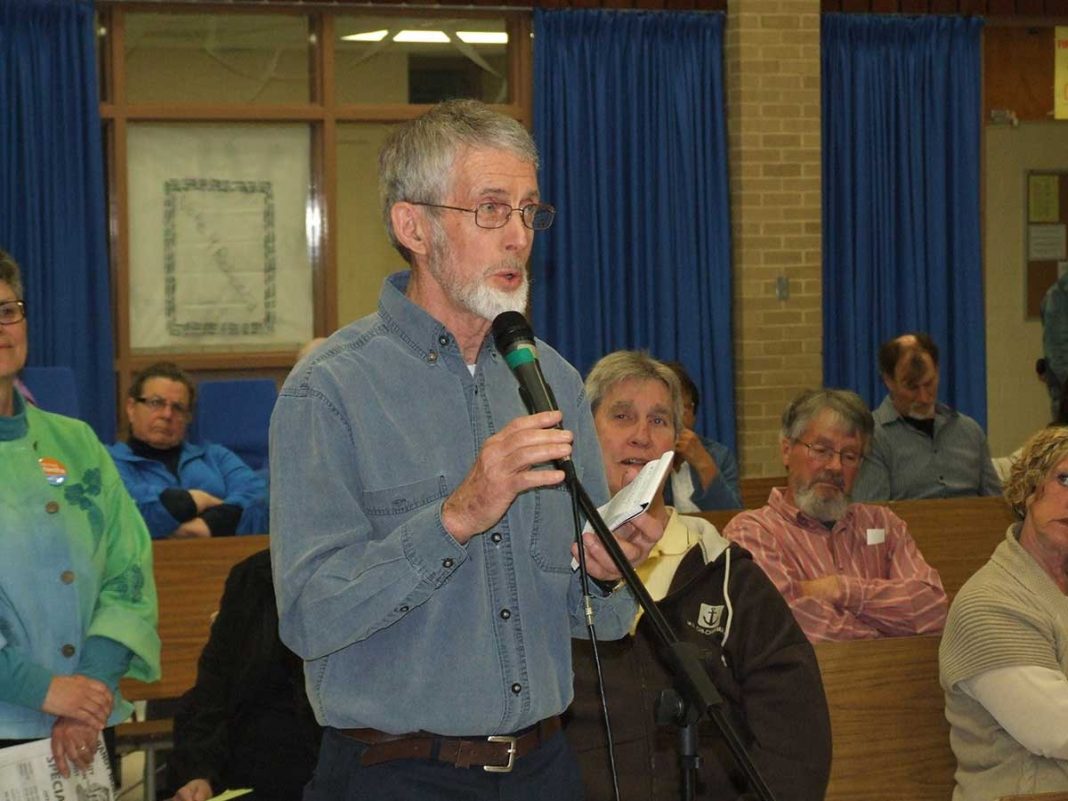Ontario, Quebec should be represented on IJC water compact
SPRING BAY – A Spring Bay resident’s concerns brought forward to the International Joint Commission (IJC) that Ontario and Quebec should be part of the Great Lakes Compact and that future meeting agendas include looking at water quantity and flow, not just water quality, are being heard.
“The IJC wants to hear your thoughts about Great Lakes water quality by November 30,” Sally Cole-Misch, of the IJC Great Lakes regional office told Mike Wilton in an email earlier this month. She explained “this summer, you (Mr. Wilton) registered for and/or attended one of the IJC’s Step In and Speak Out for the Great Lakes public meetings, listening sessions or round table events. Thank you. We received hundreds of comments during the meetings, as well as written comment cards, emails, even ‘Letters to the Lakes’ poems. If you want to provide more input, or didn’t get the chance to already, now is your opportunity. The IJC is extending our comment deadline until November 30, 2019.”
Mr. Wilton explained to the Recorder that at an IJC meeting in Collingwood was held in August, “I had brought up two points that I would like to reinforce here. First, the apparent singular concern of the IJC presently appears to be solely that of water quality, whereas there is no forum regarding water quantity or flow. Either there should be a separate forum for water quantity, especially with regard to diversions, or a block of time should be dedicated to quantity (flow) at the quality forums, which could then be more correctly referred to as Great Lakes Quality and Quantity Public Meetings.”
“Secondly,” said Mr. Wilton, “the Great Lakes Compact (not to be confused with The Great Lakes Charter) appears to presently be made up of solely of US governors bordering the Great Lakes, although I am attempting to verify this. While some literature indicates that Ontario and Quebec were part of the original agreement, there is no indication of their participation in the ratification of that document; e.g. the recent Waukesha Diversion from Lake Michigan to supply water to an ‘offshore company’ appears to have only been signed by the governor of Wisconsin. If this unfortunate situation indeed exists, it should be corrected since all of that diversionary waters will ultimately be sources from the Hudson Bay watershed in Ontario.”
He told the Recorder, “this all came about as a result of the IJC meetings my wife and I attended in Collingwood (this summer). I brought up the concern to the IJC that if the IJC is going to do something with water in the Great Lakes, they need to look at every aspect, including water flow.”
“And, as I told the IJC, there is a Great Lakes Compact in the US and the governor of Wisconsin decided to divert water from Lake Michigan, the same as the Chicago diversion, out of the Great Lakes system. They are doing this to benefit a company from Asia that want to move to into Wisconsin to sell electronic products,” continued Mr. Wilton. “I feel that the Compact should be represented not only by the US but Canada as well. But it appears only US governors from the Great Lakes states are on the compact. This means the US government can give authority to divert water, which would come from the Ogoki/Albany river system. But under the Compact agreement water is not supposed to be diverted from one watershed to another. If this is what is happening in this case, it is an exception to the rules.”





